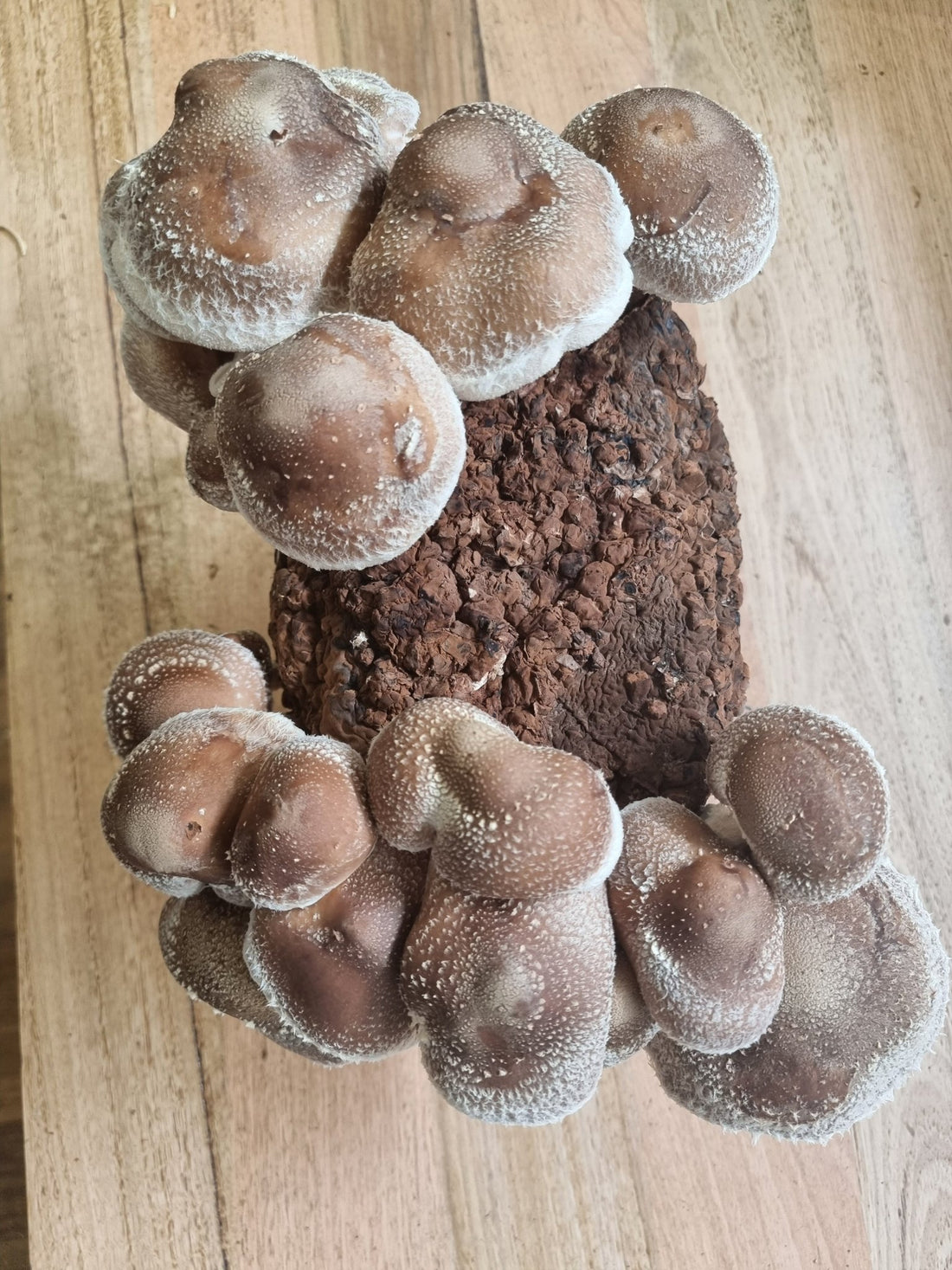Shiitake mushrooms are renowned for their delicious taste and impressive health benefits.
Packed with valuable nutrients like carbohydrates, vitamins, and fiber, they are believed to safeguard against various health issues, including high blood pressure and heart problems.
However, despite their numerous advantages, it is essential to be aware of potential side effects that some individuals may experience when consuming these mushrooms.
In this article, we will explore four significant shiitake mushroom side effects, along with how to treat them and whether the stems are safe to eat.
1. Digestive Issues
While shiitake mushrooms available at the supermarket are generally safe to consume, wild-picked mushrooms may sometimes contain toxins that lead to unpleasant symptoms like vomiting and diarrhea.
Additionally, certain individuals may find shiitake mushrooms hard to digest, especially those with intolerances.
If you have difficulty processing these mushrooms, you may experience digestive discomfort, including gas, bloating, stomach pain, and diarrhea.
Why Does It Happen?
The fiber and sugar alcohol found in Shiitake mushrooms may be responsible for these digestive problems, particularly in people with a sensitive gut.
How to Avoid It
By cooking the mushrooms thoroughly and eating them in moderation, one can often avoid or lessen these digestive issues.
2. Allergic Reaction
Although shiitake mushrooms are not one of the most common food allergens, some people may have a shiitake mushroom allergy or experience allergic reactions to other wild mushrooms.
Allergic reactions occur when the immune system overreacts to a particular food, leading to symptoms like hives, itchy skin, swelling, wheezing, vomiting, and diarrhea.
Identifying the Cause
An allergy to Shiitake mushrooms might stem from a person's individual genetic makeup or their sensitivity to certain proteins found in the mushroom.
What to Do
It's essential to consult with healthcare professionals if you suspect an allergic reaction to Shiitake mushrooms. They can conduct an allergy test and provide the appropriate treatment or avoidance strategies.
If you are aware of your mushroom allergy, it is crucial to avoid eating shiitakes and any related products to prevent allergic responses. Severe cases of allergy can lead to anaphylaxis, a life-threatening condition that requires immediate medical attention.
3. Skin Rash
In addition to allergic reactions, consuming raw or undercooked shiitake mushrooms can lead to a skin rash known as shiitake dermatitis.
This rash typically develops a day or two after mushroom consumption and resembles whiplash marks. Shiitake dermatitis is caused by a toxic reaction to lentinan, a substance present in the mushroom.
While the condition may be sensitive to sunlight, further research is required to confirm this association.
Why It Happens
A certain compound found in Shiitake mushrooms called lentinan is thought to be the culprit behind this reaction.
How to Prevent It
To minimize the risk, it's recommended to cook Shiitake mushrooms thoroughly, as this might degrade the compound causing the reaction.
If you experience shiitake dermatitis, it can be treated with anti-histamine or corticosteroid medicines, and the rash usually improves within approximately two weeks.
4. Food Poisoning
Although documented outbreaks of food poisoning from mushrooms are rare in the United States, it is still possible to contract foodborne illnesses from consuming contaminated shiitake mushrooms.
Contamination can occur during the growing or processing phase, and even rotten mushrooms that have been canned and distributed have caused food poisoning in the past.
Pathogens from raw meat, poultry, seafood, or eggs can also transfer onto mushrooms if handled in close proximity.
Therefore, it is crucial to follow proper food safety practices, including thorough cooking and prompt refrigeration of perishable foods, to avoid food poisoning.
The Underlying Issue
The risk of food poisoning can arise from contamination with bacteria or other harmful pathogens.
Safe Consumption Practices
Always ensure that the Shiitake mushrooms are fresh and properly cooked to minimize the risk of food poisoning.
Are Shiitake Mushroom Stems Poisonous?
There is a common misconception that shiitake mushroom stems are toxic and can cause severe reactions like mushroom paralysis. However, this is not true.
According to Colorado State University, shiitake mushroom stems are edible and safe to eat as long as proper food safety protocols are followed to prevent foodborne illness.
Therefore, you can confidently include the whole mushroom, including the stems, in your dishes without any concerns about toxicity.
Can I Eat Shiitake Mushrooms Everyday?
Shiitake mushrooms are a nutritious addition to your diet, and in general, they are safe to consume daily, provided you do not have any allergies or intolerances to them.
Including shiitake mushrooms in your regular meals can offer a variety of health benefits due to their valuable nutrients.
However, it's always a good idea to maintain a balanced diet and rotate your food choices to ensure you get a wide range of nutrients from different sources.
How Do You Treat Shiitake Mushroom Poisoning?
If you suspect shiitake mushroom poisoning, it's essential to seek medical attention immediately.
The symptoms of poisoning can range from mild gastrointestinal discomfort to more severe reactions, depending on the individual and the level of contamination.
Treatment for shiitake mushroom poisoning may include supportive care and symptom management, such as anti-histamines or corticosteroids for rash and allergic reactions. Prompt medical attention can help alleviate the symptoms and prevent further complications.
Conclusion
Shiitake mushrooms are a delicious and nutritious addition to many dishes but understanding potential side effects is key to enjoying them safely. Digestive issues, allergic reactions, skin rashes, and food poisoning are possible but can often be mitigated with proper handling and cooking.
Remember, individual experiences may vary, so always pay attention to your body's reactions and consult with healthcare professionals if you have concerns. Happy and safe dining!.



















